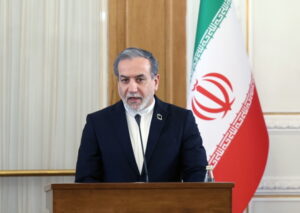Greeks are heading to the polls for the third time this year on Sunday. The government elected will lead the country as it implements the bailout deal that former prime minister Alexis Tsipras signed in August. The deal – contrary to the package of austerity measures that the majority of Greeks voted against- caused turbulence within SYRIZA. Now there are 19 parties vying for power with a weakened SYRIZA and conservative opposition New Democracy embroiled in a political race that has them running neck and neck to win.
What if the Radical Left Coalition (SYRIZA) wins?
Tsipras wants a fresh mandate to push through the reforms agreed under the terms of a new 86-billion-euro international rescue package. If he wins the outlook for reform will depend on the party’s coalition partner. A block of SYRIZA lawmakers are already pushing for the bailout to be watered down, something that Tsipras said he would press for in an interview on Friday.
Bailout deal would be imposed, but threatened with opposition from within SYRIZA’s ranks. Tsipras would call for a packet of relief measures.
What if the conservative New Democracy (ND) wins?
ND has pledged to adhere to the bailout agreement that Tsipras signed, however SYRIZA may change course and oppose the bailout. Tsipras may do a ‘mea culpa’ and oppose the very plan he signed. After all, he is known for being unpredictable and he has even said that he signed a bailout he disagrees with.
ND would try to push the bailout deal through but would face the threat of SYRIZA’s opposition.
Most likely scenario: What if neither party gets enough votes for a single-party government?
The winner would need to form a coalition with one of the smaller parties. Tsipras said in a television debate on Monday that he would “seek the widest possible consensus” so that we can have a government, but he ruled out a collaboration with New Democracy due to the huge differences in ideology between the two parties. Though SYRIZA had in the past stated that it would not work with pro-memorandum parties, Tsipras recently considered co-operating with socialist PASOK.
On his part, ND leader Vangelis Meimarakis said he would be interested in collaborating with SYRIZA should his party win.
In both cases, the bailout deal would be imposed.
Possible scenario: What if either SYRIZA or ND have a clear majority?
Under Greek law, an additional 50 seats are automatically added to the winning party’s total in the 300-member parliament. Either way, the main task of the major parties that are ahead in the polls would be to implement the bailout by creditors.
How likely is an abstention?
Surveys prior to the elections showed that many of the 9.9 million weary Greek voters were undecided two days before the vote and could abstain. This means that the winner would not have enough votes to form a government alone. Turnout was low on Sunday as voters trickled to the voting booths.
How relevant is Sunday’s election?
The consensus view in Greece and Europe is that the September 20 is largely irrelevant. Regardless of the winning party or coalition that may emerge, Greece will have no choice but to implement the harsh terms of the bailout. The same terms that were rejected in a referendum in July.
Least likely scenario: What would happen if there is a hung party but no deal to form a coalition is reached?
In this case scenario, the constitution requires that a new round of national elections would need to be held.
Ask me anything
Explore related questions





